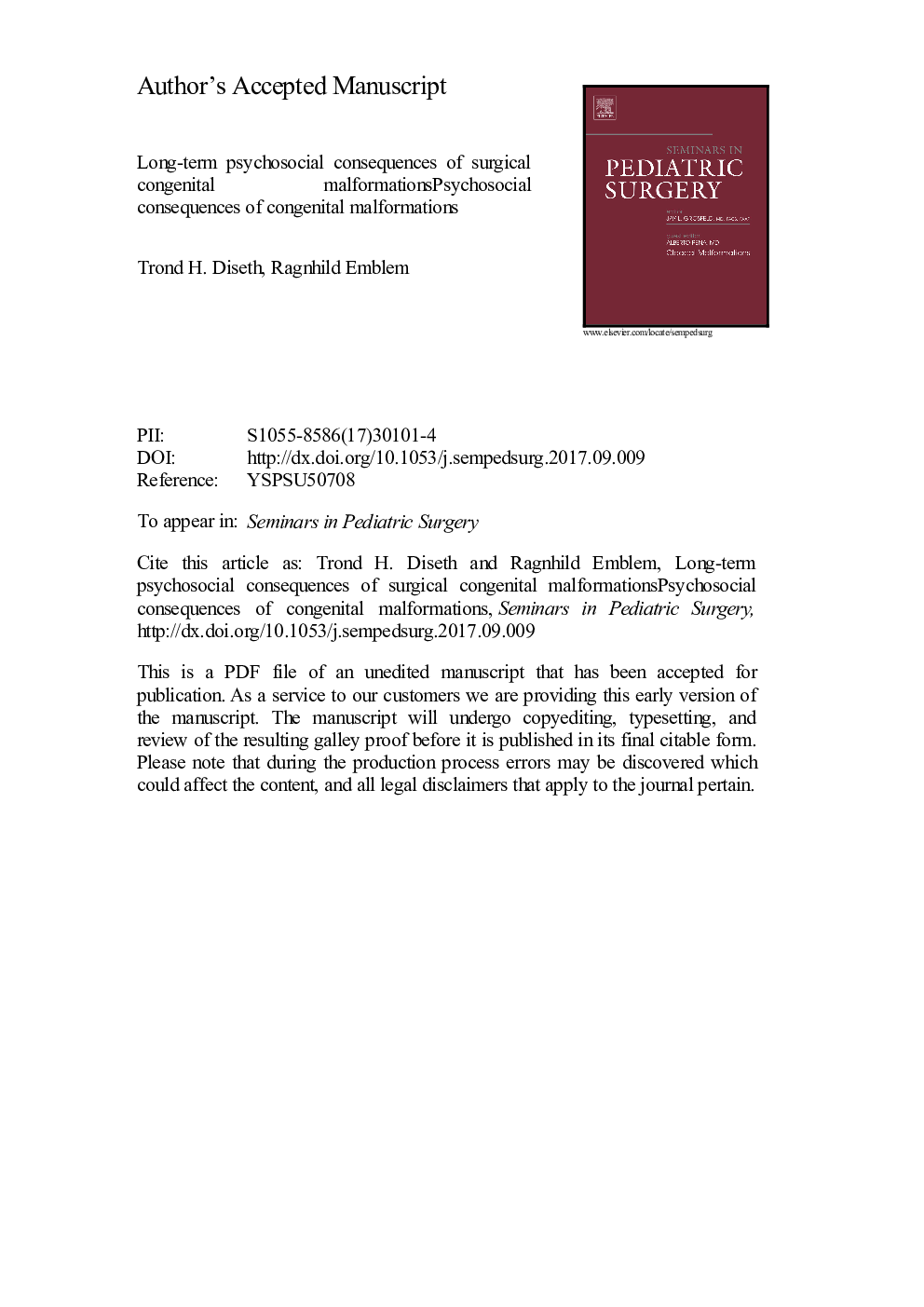| Article ID | Journal | Published Year | Pages | File Type |
|---|---|---|---|---|
| 8813838 | Seminars in Pediatric Surgery | 2017 | 34 Pages |
Abstract
Literature searches conducted on PubMed database revealed that less than 1% of all the records of surgical congenital malformations described long-term psychosocial consequences, but with diverse findings. This inconsistency may be due to methodological differences or deficiencies; especially in study design, patient sampling, and methods. Most of the studies revealed that the functional deficits may have great impact on patients' mental health, psychosocial functioning, and QoL; both short- and long-term negative consequences. Factors other than functional problems, e.g., repeated anesthesia, multiple hospitalization, traumatic treatment procedures, and parental dysfunctioning, may also predict long-term mental health and psychosocial functioning. Through multidisciplinary approach, pediatric surgeons should also be aware of deficits in emotional and psychosocial functioning. To achieve overall optimal psychosocial functioning, the challenge is to find a compromise between physically optimal treatment procedures and procedures that are not psychologically detrimental.
Keywords
Related Topics
Health Sciences
Medicine and Dentistry
Perinatology, Pediatrics and Child Health
Authors
Trond H. MD, PhD, Ragnhild MD, PhD,
